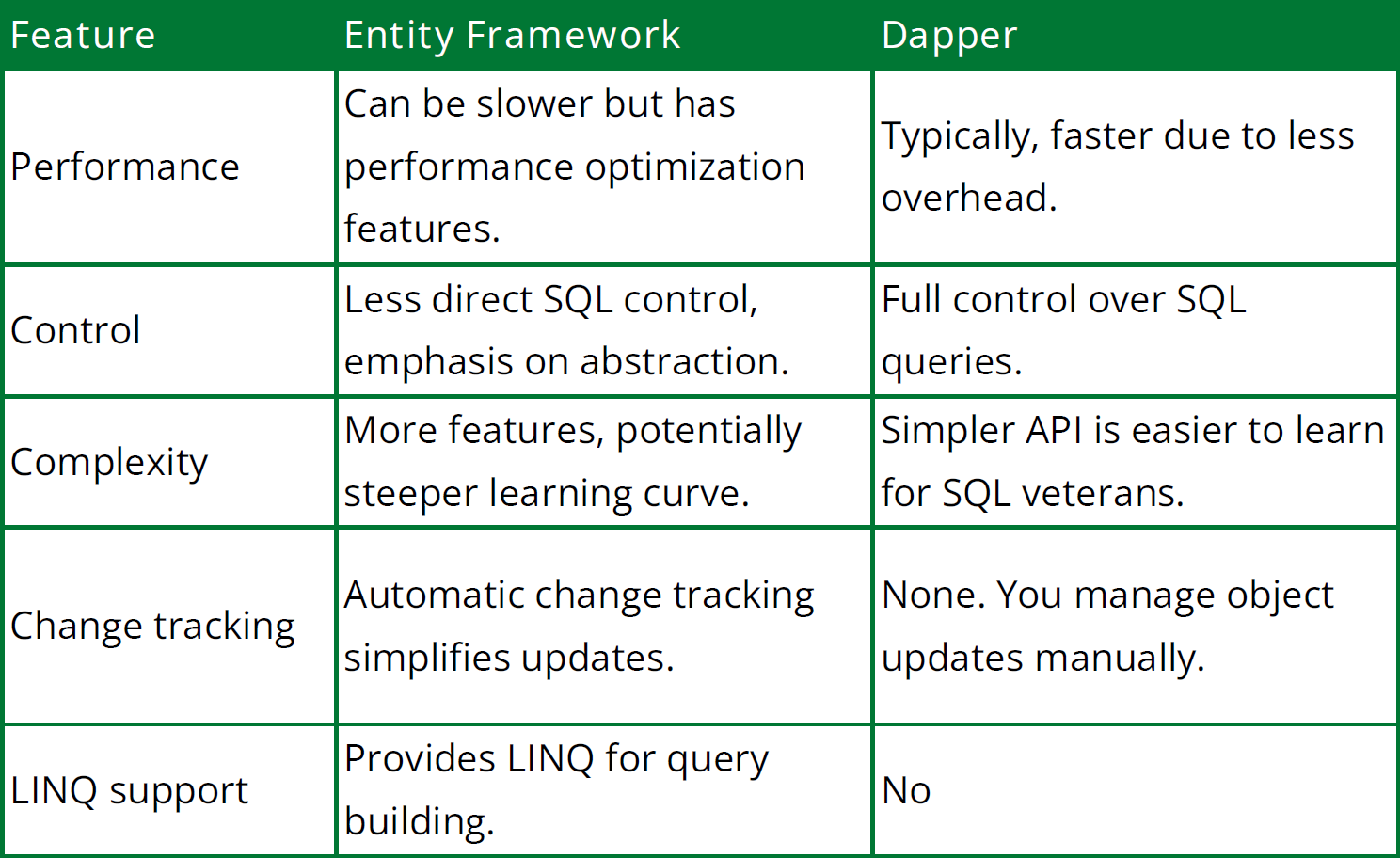The results suggest that EF and Dapper exhibit comparable performance for deleting a single employee record, with a slight edge for EF in terms of mean execution time and consistency. However, Dapper is notably more memory efficient.
- Mean execution time: There is no difference, suggesting that both technologies perform similarly for this specific operation.
- Error margin: Dapper has a slightly higher error margin, showing its performance might be less consistent across different runs compared to EF.
- Memory allocation: Dapper uses significantly less memory than EF for this operation.
4. Battle scenes
In the vibrant realm of .NET development, two mighty forces reigned supreme: Dapper, the lean and swift micro-ORM, and Entity Framework, the feature-rich giant. Their rivalry was legendary, developers whispered tales of epic battles over coffee and in dimly lit Stack Overflow threads. In a dimly lit coding arena, keyboards clack furiously and impatiently.
Dapper: "Ha! Entity Framework, you fake giant! Your endless layers and abstractions slow you down. I am lightning-fast, a minimalist masterpiece! I’m a new era."
Entity Framework: "Speed is only one metric, Dapper. I mastered the power of relationships, change tracking, and LINQ sorcery. Your raw SQL is just a primitive tool."
Dapper: "A primitive? My direct SQL control gives me unmatched precision and power! Your fancy LINQ spells trouble with those unexpected N+1 queries running in the shadows."
*The N+1 problem occurs when Entity Framework generates many separate database queries due to lazy loading instead of efficiently fetching all related data upfront.
Entity Framework: "N+1? A rookie mistake! An ORM fighter like me knows the spells of eager loading. But what about your silly mapping mismatches or lack of change tracking?"
The battle raged on. SQL queries flew across the screen, unit tests ran in the background. Performance benchmarks were called, and architectural patterns were debated.
Wise Developer sipping coffee: "Ah, the eternal ORM dance! But remember, dear fighters, the true enemy is not each other, but the poorly designed data access layers. Each of you has its place. You Dapper for a precision strike, and you Entity Framework for complex domains. The key my little fighters, is not the framework, but understanding your data and choosing wisely."
Confused, both fighters lowered their weapons and wondered if there was a place for both in that world. They called a truce, and a new era has risen, no longer rivals but allies in the quest to develop better applications.
But thinking that at what happened, should any of them win that battle? Are any of them braver fighters? As the wise developer once said, “It depends”.








